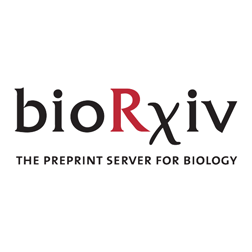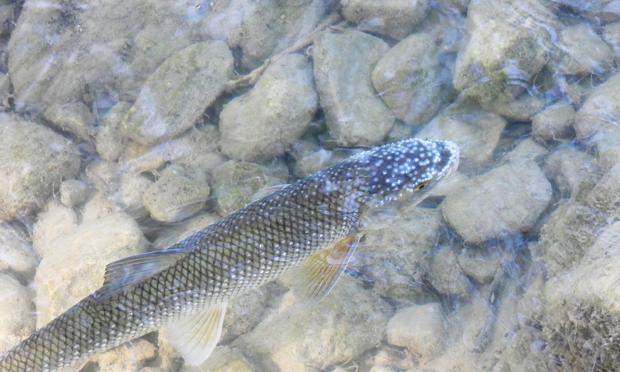Applying environmental DNA metabarcoding to calculate an index of biotic
integrity for freshwater fish
https://www.biorxiv.org/content/10.1101/2025.05.26.656190v1
#environmentalDNA #eDNA #metabarcoding #freshwater #fish #IndexOfBioticIntegrity
Applying environmental DNA metabarcoding to calculate an index of biotic
integrity for freshwater fish
https://www.biorxiv.org/content/10.1101/2025.05.26.656190v1
#environmentalDNA #eDNA #metabarcoding #freshwater #fish #IndexOfBioticIntegrity

Multi-metric indices like the Index of Biotic Integrity (IBI) are important biomonitoring tools for Clean Water Act compliance in the United States (US) but have also been implemented worldwide across many taxonomic groups. Environmental DNA (eDNA) metabarcoding could complement IBIs by increasing detection sensitivity for rare taxa while also reducing monitoring costs. To date, no studies have examined the efficacy of using eDNA metabarcoding to calculate IBIs in the US. Here, we used eDNA metabarcoding to calculate a fish-based IBI for streams and rivers of the Tennessee River Basin in northern Alabama, US. We collected water samples from 50 stream and river sites across a gradient of land use intensity, extracted eDNA from these samples, and sequenced the eDNA using vertebrate-specific primers. We compared our eDNA-IBI to a previous fish-IBI implemented by the state of Alabama using conventional sampling, as well as predicted biological condition of these streams from the US Environmental Protection Agency (EPA) based on a benthic macroinvertebrate multi-metric index (BMMI). We found a highly significant, positive relationship between the eDNA-IBI and fish-IBI for the same streams but a weaker, non-significant positive relationship between the eDNA-IBI and BMMI. Notably, the former was recovered despite eDNA-IBI sampling being conducted nine years after the conventional fish sampling at slightly different locations, the fish-IBI having used greater sampling effort throughout the year (including spring and autumn rather than only summer sampling), and a lack of reference DNA sequences that prevented eDNA detection for some species detected by conventional fish sampling. Accordingly, our study provides a baseline for how an eDNA-IBI may work relative to multi-metric indices calculated from conventional sampling, which can be improved through future directions identified and discussed in our paper. ### Competing Interest Statement The authors have declared no competing interest. US Department of Agriculture (USDA) National Institute of Food and Agriculture (NIFA) Hatch Project, ILLU-875-976 University of Illinois Urbana-Champaign Graduate College Dissertation Travel Grant Harley J. van Cleave Research Award University of Illinois Urbana-Champaign Graduate College Dissertation Completion Fellowship Program in Ecology, Evolution, and Conservation Biology summer research stipend supported by USDA NIFA Hatch Project, ILLU-875-984
It was a joy to be at #NoWPaS again last week! The meeting, which took place in Halifax, #NovaScotia, is still as vibrant and stimulating as the first I attended in 2018. I presented our work using #eDNA to monitor #AtlanticSalmon in #rivers, and was selected as best talk in the #conservation session!
Salmon populations are in a worrying state but it was bolstering to meet fellow researchers working on the problem. Thanks @TheFSBI and Genetics Society for sponsoring my travel! #NoWPaS2025
Pipeline release! nf-core/ampliseq v2.14.0 - Ampliseq Version 2.14.0!
Please see the changelog: https://github.com/nf-core/ampliseq/releases/tag/2.14.0
#16s #18s #ampliconsequencing #edna #illumina #iontorrent #its #metabarcoding #metagenomics #microbiome #pacbio #qiime2 #rrna #taxonomicclassification #taxonomicprofiling #nfcore #openscience #nextflow #bioinformatics
Statt Fische 🐟 wie bisher mit Netzen oder Strom zu fangen, analysierten Forschende der Uni Innsbruck im Labor die DNA-Spuren, die Fische ins Wasser hinterlassen – etwa durch Hautzellen oder Ausscheidungen –, um die Verteilung und die Lebensräume von Fischen im oberösterreichischen Mondsee zu bestimmen.
Mehr zu der Forschungsarbeit 🧬 : https://www.uibk.ac.at/de/newsroom/2025/fische-im-mondsee-mittels-umwelt-dna-bestimmt/
#Biologie #Mondsee #Biodiversität #UmweltDNA #eDNA #Oberösterreich

Wie die Analyse von Umwelt-DNA den Blick unter die Seeoberfläche revolutioniert und die präzise Erfassung von Fischarten in Seen schonend ermöglicht, zeigt ein Forschungsteam der Universität Innsbruck in Kooperation mit der AGES und dem Bundesamt für Wasserwirtschaft in Scharfling am Beispiel Mondsee.
🧬 We are seeking an #eDNA consultant! Join the OBIS team for an exciting 6-month remote mission supporting MARCO-BOLO and EDNAAqua-Plan, two flagship European marine biodiversity projects!
📩 Apply by 23 .5.2025, 17:00 CEST
👉 Read more: https://obis.org/2025/05/14/edna-consultant/
🚨 Reminder that the @spaam_community [https://genomic.social/@spaam_community]
will offer its fourth (virtual) summer school course sponsored by the Werner
Siemens Foundation and @NFDI4Microbiota [https://nfdi.social/@NFDI4Microbiota]
this year:
INTRODUCTION TO ANCIENT METAGENOMICS (4-8 Aug 2025)
For more info see https://spaam-community.github.io/wss-summer-school/
[https://spaam-community.github.io/wss-summer-school/] and this 🧵[1/3]
#aDNA [https://genomic.social/tags/aDNA] #Paleogenomics #metagenomics #spaam #AncientMetagenomics #AncientDNA #Microbiome #eDNA
Capture—Incubate—Release: An Animal-Friendly Approach to Assess Local Aquatic Macroinvertebrate Species Diversity Through Environmental DNA Metabarcoding